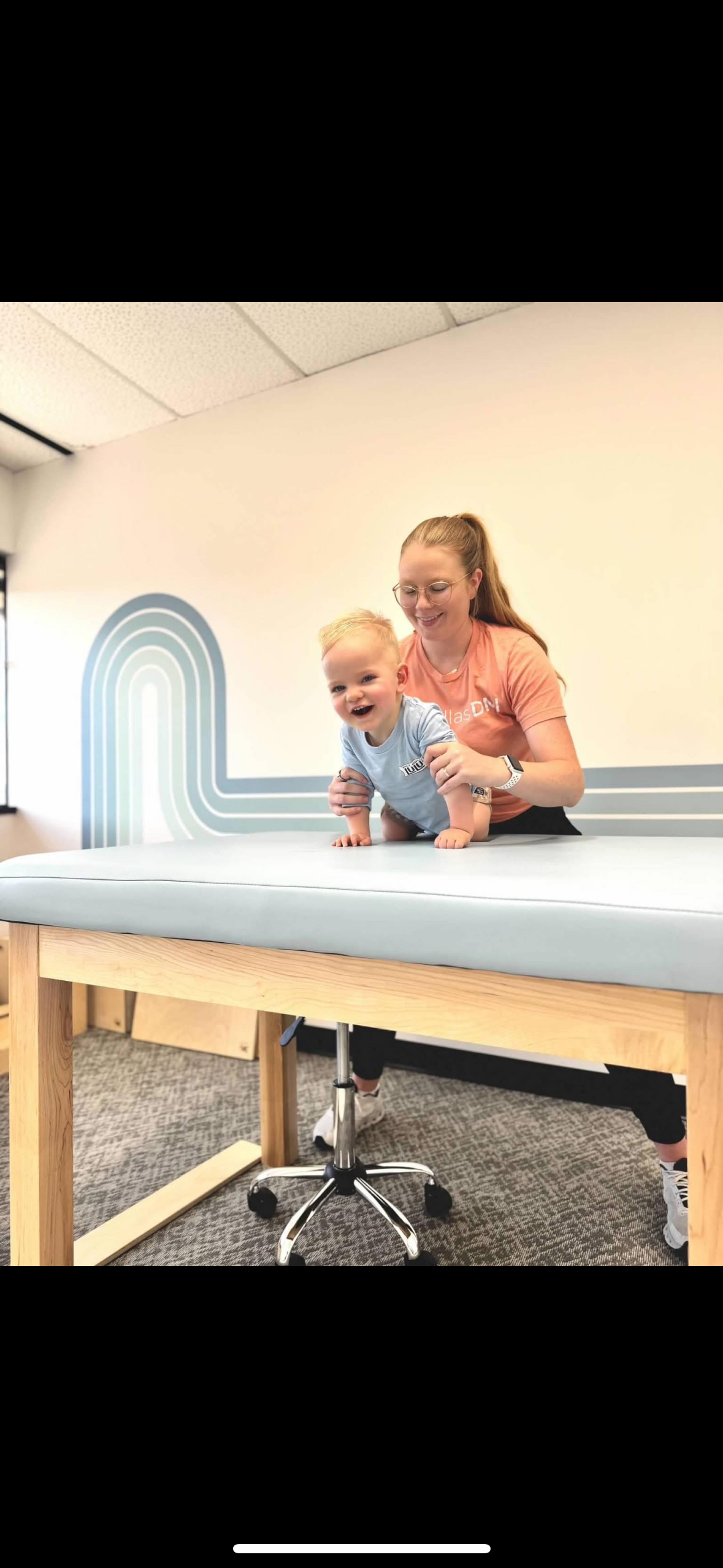What is Dynamic Movement Intervention?
"Dynamic Movement Intervention (DMI) is a therapeutic technique used in physical and occupational therapy to treat children with motor delay by improving automatic postural responses and help each child progress towards developmental milestones (Ie. rolling, sitting, four-point, crawling, standing, walking and transitions). The goal of DMI is to provoke a specified active motor response from the child in response to defined dynamic exercises prescribed by the therapist. (This means that the therapist will present an exercise in order to provoke a specific movement or response from your child.)
This comprehensive intervention reflects current research on neurorehabilitation, technologies and methodologies. DMI stimulates neuroplasticity to help your child’s brain make new and improved connections and develop their motor milestones" (sourced from www.dmitherapy.com, 2022).
What does DMI Focus on?
Gross Motor Skills
Alignment
Postural Control
Balance
Range of Motion
Functional Movements
Somatosensory Development
Modifying Tone and Reflexes
Global Development
Who can benefit from DMI?
DMI can benefit children with any type of motor delay or neurological deficit. It can benefit children of all ages and can start as early as 3 months of age. Regardless of level of cognition and extent of neurological deficit or damage, affected children benefit from DMI as it pertains to stimulating neuroplasticity in the developing brain.
What is intensive therapy?
Here at Ascend Pediatric Therapy intensives will range from 1-2 weeks long, 5 days per week, with the child receiving DMI 1-2x per day. Sessions are 55 minutes long. We will be using exercises to improve the child’s postural control, balance, and strength in order to build upon foundational milestones.
With repetition and consistency over the course of the 1-2 week intensive, children will make progress towards their goals, gain confidence, and will often make more progress in one intensive than in 6-8 months of traditional therapy.


